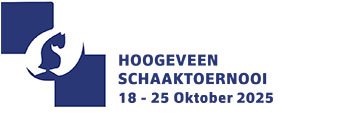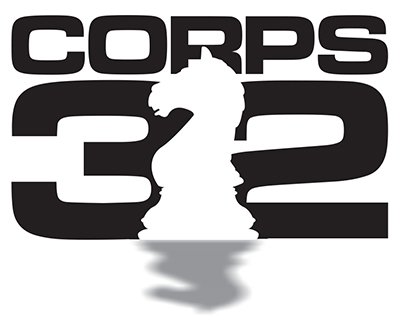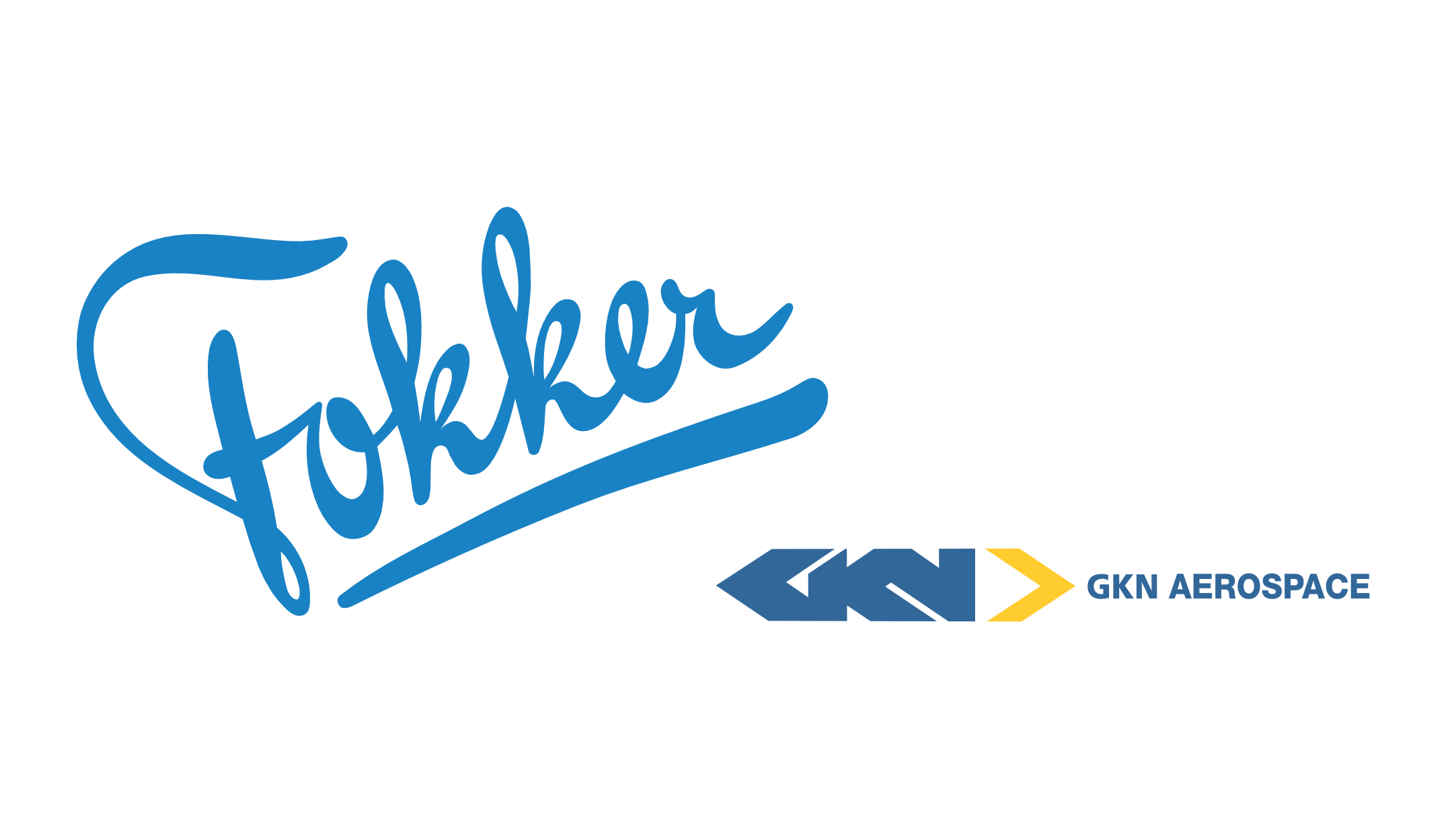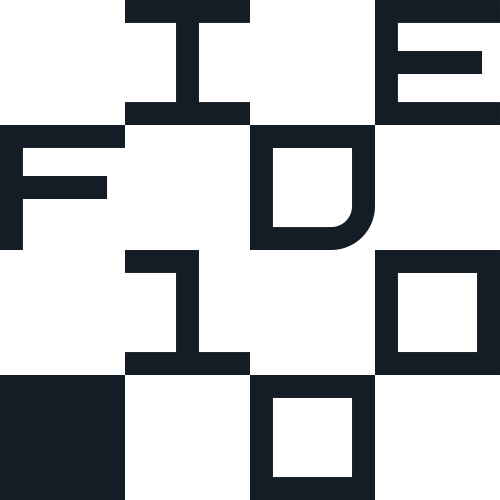Amateur 1 en 2
1. Er wordt gespeeld volgens het laatst uitgegeven FIDE-reglement.
2. De verzuimtijd bedraagt 60 minuten. De tijd gaat in vanaf de aangekondigde aanvangstijd van de betreffende ronde. De speler die later dan 60 minuten na de aanvangstijd voor het eerst aan het bord verschijnt, verliest de partij, tenzij de arbiter anders beslist.
3. Verboden is het dragen van een mobiele telefoon op het lichaam, in een jas of tas die wordt meegenomen tijdens een wandeling door de speelzaal of bij bezoek aan het toilet. Een overtreding van deze regel wordt bestraft met het verlies van de partij. Toegestaan is het meenemen van een mobiele telefoon tot in de speelzaal mits deze wordt uitgeschakeld bij aanvang van de partij. Deze telefoon mag in een jas of tas bewaard worden naast de speeltafel, of hangende op een stoel. Hij mag ook afgegeven worden aan een arbiter. De telefoon mag niet op de speeltafel liggen.
4. Speeltempo:
Amateur I (middaggroep): 40 zetten in 90 minuten gevolgd door 30 minuten voor de rest van de partij met 30 seconden increment vanaf zet één.
Amateur II (ochtendgroep): 90 minuten voor alle zetten met 30 seconden increment vanaf zet één.
5. De indeling vindt plaats volgens de FIDE regels van het Zwitsers Systeem op rating. Er wordt ingedeeld met SwissManager. Voor de amateur groepen wordt er vóór aanvang van de eerste ronde geloot voor de kleur op het eerste bord van de eerste ronde.
6. Beide originele exemplaren van de notatieformulieren en het wedstrijdbriefje worden na afloop van de partij ondertekend ingeleverd bij de wedstrijdleiding. Zowel op de notatieformulieren als op het wedstrijdbriefje staat de uitslag vermeld en staan er handtekeningen van beide spelers.
7. In de ronden 1 tot en met 6 kan éénmaal een bye opgenomen worden in ruil voor een half punt. De bye moet worden doorgegeven aan de verantwoordelijke arbiter van de betreffende groep. Dat is mogelijk tot het eind van de ronde vóór de ronde waarvoor de bye wordt aangevraagd.
8. In de speelzaal mag niet worden gevluggerd of geanalyseerd. Het schaakmateriaal mag niet worden meegenomen uit de speelzaal.
9. Bij een gelijk aantal punten worden geldprijzen gedeeld. Ratingprijzen worden niet gedeeld. Er wordt gekeken wie er het hoogst staat volgens onderstaande tiebreak regels. Een speler komt slechts voor één ratingprijs in aanmerking, namelijk die van zijn eigen categorie.
10. Voor het eindklassement gelden achtereenvolgens de volgende tiebreaks:
a. Aantal behaalde punten.
b. Onderling resultaat. Enkel te gebruiken voor de eerste plaats en als alle spelers die gelijk eindigen allemaal tegen elkaar gespeeld hebben. De som van de onderlinge resultaten wordt berekend.
c. Het aantal overwinningen.
d. Het aantal partijen met zwart. Niet gespeelde partijen tellen als gespeeld met wit.
e. Weerstandspunten Cut 1. Het slechtste resultaat telt niet.
f. Sonneborn-Berger score.
g. Loting (enkel voor de eerste plaats en voor ratingprijzen).
11. Als een speler het niet eens is met een beslissing van een arbiter, kan de speler in beroep gaan bij de hoofdarbiter. De hoofdarbiter doet uitspraak en als de speler het ook met die uitspraak niet eens is, kan de speler zich wenden tot de Commissie van Beroep. Het beroep moet schriftelijk worden ingediend binnen een half uur na het einde van de laatste partij van de betreffende ronde bij de toernooidirecteur en er dient een vergoeding betaald te worden van 50 euro. De Commissie van Beroep doet zo snel mogelijk uitspraak en die uitspraak is bindend. Als het beroep wordt toegekend, wordt de vergoeding terugbetaald.
12. Alle toernooien die gespeeld worden tellen mee voor de KNSB-rating en de FIDE-rating.
Tournament Rules Hoogeveen Open
1. The tournament is played according to the latest FIDE Laws of Chess.
2. The default time is 60 minutes. The start of the session is the time at which the round is scheduled. Any player who arrives at the chessboard after the default time shall lose the game unless the arbiter decides otherwise.
3. During a game a player is forbidden to carry around a mobile phone, electronic means of communication or any device capable of suggesting chess moves in the playing venue. It is allowed to keep such a device in a bag or coat near the playing table as long as the device is completely switched off before the game starts. You can also hand in your telephone at the arbiters’ table before the start of the round. If a player is late all devices much be switched off completely before entering the playing-hall. It is forbidden to carry a bag or coat holding such a device. If it is evident that a player has such a device on him in the playing venue, the player shall lose the game. The opponent shall win. Players who have finished their game and spectators are not allowed to use any electronic device in the playing venue.
4. Rate of play: 90 minutes for the first 40 moves followed by 30 minutes for the rest of the game with an addition of 30 seconds per move starting from move one.
5. Pairings will be made according to the FIDE Swiss Rules. SwissManager is used as software. The drawing for the colours of the first board in the first round will take place before the start of the first round.
After the game both original scoresheets and the matchcard are handed to the arbiter. The result of the game and the signatures of both players are on the original scoresheets and the matchcard.
6. In rounds 1 to 6 you are allowed one bye in return for a default draw as a result. Inform the responsible arbiter if you want to take a bye. You can request for a bye until the end of the previous round.
7. After round 7 the top four players in the standings will play a semi-final: 1-4 and 2-3. However, a player cannot play a semi-final if he or she has taken a bye as stated in article 7. To decide which four players reach the semi-final in case of an equal score after round 7 the Tournament Performance Rating (TPR) will apply. In the semi-final and the final the highest players in the ranking after 7 rounds will have white. If a semi-final or final ends in a draw a two-game mini-match will be played at the rate of all the moves in 3 minutes with 2 seconds added on for each move from move 1. If this match is tied a new drawing of lots for colours will take place. The winner will be the first winner of a game. After each odd-numbered game the colours will be reversed.
8. The rest of the players will continue in the Open section to play the final two rounds. They may then win additional prizes based on their position in the final standings of the open section.
9. It is not allowed to analyse or play blitz games in the playing venue. You may not take chessboards, pieces or chess clocks outside the playing venue.
10. If two or more players finish with equal points money prizes will be shared equally. Rating prizes will not be shared. Rating prizes are calculated according to the tie-breaks mentioned below. A player shall be eligible to the rating prize for his own category only.
11. Tie-break systems after nine rounds:
a. Number of points.
b. The greater number of wins.
c. The greater number of games with black (unplayed games shall be counted as played with white).
d. Average rating of opponents.
e. Buchholz Cut 1.
f. Sonneborn-Berger system.
g. Drawing of lots (only for the first prize and for rating prizes).
12. The organiser and the team of arbiters take anti-cheating measures very seriously. The arbiter may require the player to allow his clothes, bags, other items or body to be inspected in private. The arbiter or person authorised by the arbiter shall inspect the player and shall be of the same gender as the player. If a player refuses to cooperate with these obligations the player will lose the game and be removed from the tournament.
13. ChessBase will broadcast on live.chessbase.com where computer analysis is added to the games. There are precision statistics given at the end of the games. They give the percentage of relevant (non-forced) moves that are identical with the ones a top chess engine would play. The level of precision of different players is compared and we will look for suspicious values.
14. When a player has a dispute with an arbiter he can appeal against the decision of the arbiter. The chief arbiter will look into the matter and rule in the dispute. If the player does not agree with the chief arbiter’s decision he can ask for an appeal from the Appeals Committee. The appeal is accompanied by a fee of 50 euros and submitted in writing to the Chief Organizer within 30 minutes from the end of the last game of that round. The decision of the Appeals Committee is final. The fee is returnable if the appeal is successful.

 .
. 















